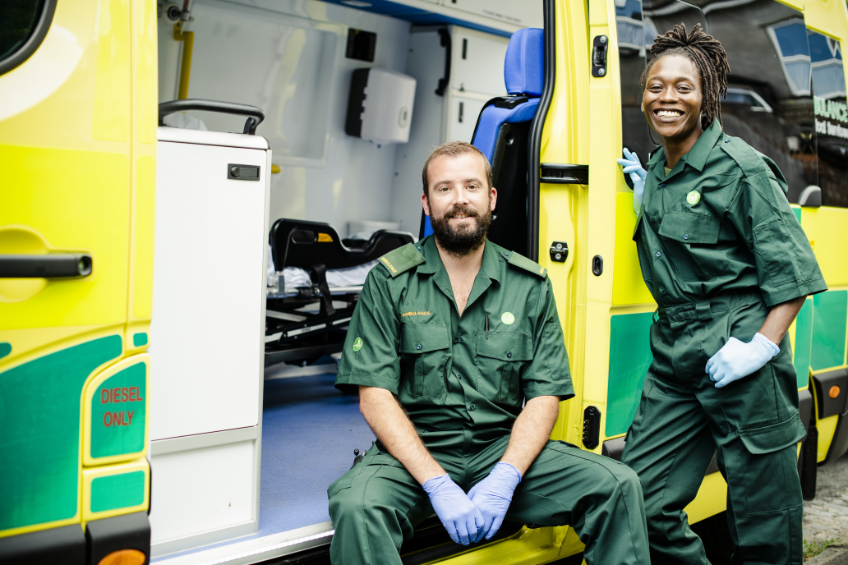Allied health professional jobs – therapists, osteopaths, paramedics and more

Where are allied health professional jobs located?
Taken together, the allied health professions make up one of the largest of all clinical workforces, and as such vacancies can be found across a very wide range of locations. These include hospital and community settings as well as the independent and charity sectors, and schools.
Art therapists – also known as art psychotherapists – and drama therapists work with people of all ages, while music therapists can work across a wide range of locations including hospitals, hospices, day centres, children’s centres and prisons. Speech and language therapists, meanwhile, can operate in community clinics or patients’ own homes, although many will be employed directly by hospitals.
As well as hospital or community settings, dieticians can work in a variety of sectors including education, sport or the food industry. Occupational therapists can similarly work in hospitals, clinics, prisons or social services departments, while podiatrist roles are found in both hospital and community settings. Prosthetist and orthotist jobs, meanwhile, are likely to be located in hospitals, while most osteopath roles are in the private sector. Most paramedics will work as part of an ambulance crew, although some will work alone.
What can allied health professional roles lead on to?
Art and drama therapists can choose to specialise in areas such as dementia, palliative care or mental wealth, or a specific client group such as children, the elderly or people in the criminal justice system. They can go on to become senior or consultant art therapists or build up their own private practice, while music therapists can choose to specialise in areas such as child development, mental health or neuro-disability.
Speech and language therapists can develop specialisms in areas such as cleft palate, swallowing difficulties or clients with learning disabilities. Some speech and language therapists will set up their own clinics while others will take advantage of the high demand for qualified professionals by relocating for job offers overseas. Dieticians can go on to specialise in specific areas such as cancer, diabetes, elderly care or sports nutrition, and may also take advantage of opportunities to work abroad. Occupational therapists can also choose to specialise, or become involved in research or education.
Podiatrists can move into management, set up their own practices, or choose specialisms in fields such as diabetes, sports injuries or children’s care. They can also train to become podiatric surgeons. Prosthetists and orthotists can also move into management roles or establish their own clinics, while osteopaths can specialise in areas such as sports injuries and elderly care or move into leadership or teaching roles. Paramedics can go on to join specialist teams, such as those working with stroke patients or on air ambulances.
What other ways of working are there?
Many art or drama therapists will work on a part-time or voluntary basis to get the necessary experience before applying for full-time roles, while some music therapists will prefer to be self-employed. Many dieticians choose to work on a freelance basis.
What is the allied health professional job market like?
Some professionals, such as paramedics, are in extremely high demand as a result of staffing shortfalls, while the College of Podiatry says that 100 per cent of UK podiatry students who want a job have found one within a year of graduation. Sectors such as speech and language therapy are also expected to experience significant growth in the coming years.





